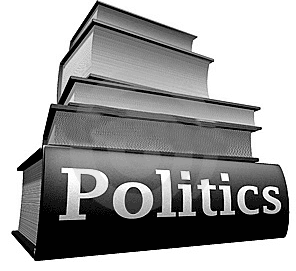Politics in Universities, Potential Threat to Safe Academic Space

Mukti Rijal
Tribhuvan University (TU) marked its 52nd anniversary the other day amidst a function where none of the apex level dignitaries, including the chancellor and vice-chancellor, attended. The Chancellor of Tribhuvan University, Prime Minister Jhala Nath Khanal, could not attend the function because of his more gravitating and important schedule elsewhere whereas the vice-chancellor was not available on that occasion because the post has been lying vacant for some time now.
Political inaction
The pro-chancellor of the university, Education Minister Ganga Tuladhar, was not happy with their absence and reportedly lamented that the political leaders had not accorded due priority to appointing important functionaries of the universities as they were intensely engaged in hot bargaining for the high profile positions in the constitutional bodies.
It would be relevant to note here that the education minister was all for immediate appointment to the vacant posts in the universities, but he was not able to do so due to political inaction and apathy among the responsible political authorities and leaders.
The country at present has five universities - the higher seats of learning - but they have been made to operate, as mentioned above, without the vice chancellors for the last several months. A bevy of university teachers recently met with the prime minister and education minister, in particular, and pleaded with them to appoint the officials in the varsities based on objective academic criteria and effective leadership competence. They cited examples, practices and precedents from developing and developed nations where university officials are selected only on the basis of academic credentials and credibility.
Even some academics have advocated for competence-based selection and appointment of the vice chancellors to restore the credibility and image of the universities where the pursuit of competitive, appropriate and relevant knowledge is encouraged and promoted. However, these pleas have been drowned in the cacophony of political noises clamoring and lobbying for partisan-based selections and appointments.
It was a natural reaction to the prevailing situation when the University Grants Commission (UGC) a few months ago reportedly showed its reluctance to release the grants in aid allocated by the government to the varsities because of the absence of high-level officials who could lead, plan and decide on the key and critical issues and utilise the resources transferred for the development of the institutions.
The same UGC had to confront politically motivated wrath when its chairman was appointed by the authorities, allegedly without consideration, to spoil the sharing of the TU positions. The UGC office was padlocked by the student unions alleging that the nomination was motivated and guided by partisan interest and consideration. The political differences and, on top of that, the tendencies of the parties to claim and usurp the top-level positions for their own party loyalists have posed problems in appointing officials who can lead and administer the higher seats of learning, educational research and innovation.
What is intriguing in this context has been the innumerable cases and examples of sheer politicisation of educational institutions where political party functionaries are preferred to academicians and educationists specialising in the relevant disciplines and subjects. At a time when the country needs the educational institutions and seats of learning specialising in the promotion of technical trades and vocational education that generate jobs and employment, the deliberate neglect by the parties shown in appointing officials and administrators who can provide strategic vision to the universities is an act of sheer irresponsibility.
The bickering over what and whose party loyalists should be accorded preference to man the universities of national importance cannot be allowed to come on the way of running the vital and important educational institutions. Needless to say, educational institutions in the country are overly and destructively politicised, and there is interference and meddling by the political groups even in the schools operating in the remote areas of the country.
The incident that took place in a high school at Gorkha recently indicates that intra-party factionalism has started to impact negatively on the performance of educational institutions. That the headmaster was replaced through coercion and intimidation because he did not belong to one’s political faction speaks volume about the politicisation of the educational institutions in the country.
Mindless politicisation
Academic action and relevance of the educational institutions have been relegated to the background while these forums have been degenerated into arenas of political tussles. Even politically-motivated conflicts have been allowed to result into gang fights and violent brawls quite often, indicating that the political parties tend to use these academic forums and campuses to fulfill their political ends and nefarious interests.
Nepal needs a competitive and healthy environment for imparting education that best caters to the contemporary requirements of the nation. The mindless politicisation of educational institutions, especially to fulfill one’s own political ends, should be stopped and controlled. The institutions should be left alone and allowed to run as space for academic engagements and innovations so that the entire nation benefits and the available resource are better utilised.
source: Rijal, Mukti(2011),"Politics In Universities, Potential Threat To Safe Academic Space ", RisingNepal, 12 July 2011
Posted on: 2011-07-13





























